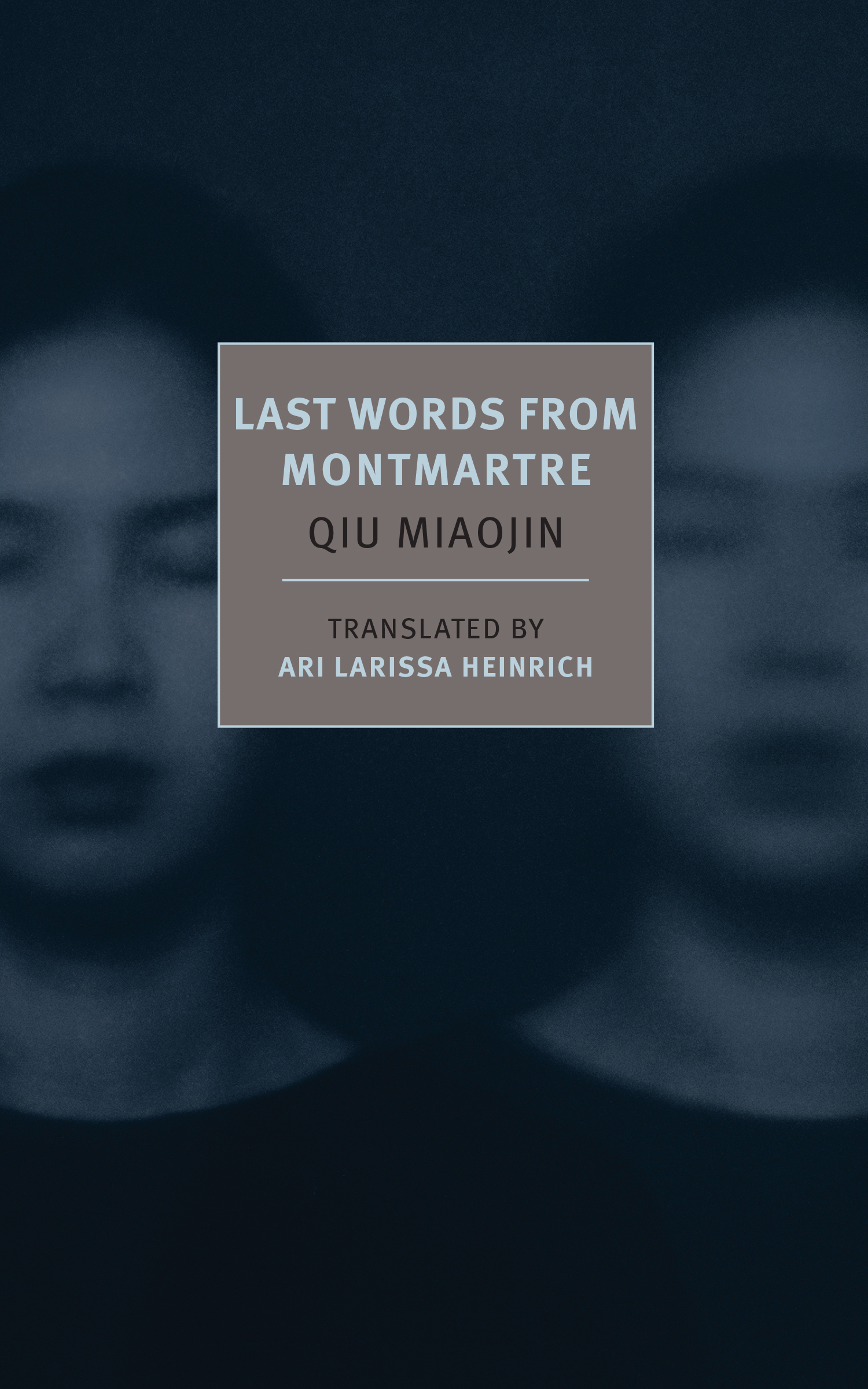Last Words from Montmartre
by Qiu Miaojin, translated by Ari Larissa Meinrich
reviewed by Shan Wang
The last words in Last Words from Montmartre, a posthumous, semi-autobiographical novel by Taiwanese writer Qiu Miaojin, are not the author’s own. They belong to Greek director Theo Angelopoulos, from his film The Suspended Step of the Stork:
I wish you happiness and health
but I cannot complete your journey
I am a visitor.
Everything I touch
causes me real suffering
and does not belong to me.
There is always someone who says:
This is mine.
Angelopoulos’ lines are provided to us first in French, then Chinese, then English, as part of a final chapter entitled “Witness.” The 1991 film, loosely, is about crossing borders—why and how do people leave places behind, in search for new homes and identities? When a border is crossed, what exactly is on the other side? Shuffling between three countries, multiple lovers, emotional states, time periods, and even prose styles, the nameless narrator of Last Words from Montmartre searches for an outlet for her overwhelming passionate love, recently spurned. Heartbreak, she finds, is a liminal state. So too is love. And for her, so is life.
Last Words is a collection of twenty-one “letters,” though many are not addressed to any particular person and none follow the typical letter format. Letter eighteen is a single poem. Letter nineteen ends with the lyrics of Elvis’s “Can’t Help Falling in Love.” Letter six is a series of cobbled together recollections, at the end of which the narrator resolves to “reincarnate into [her] new identity as Zoë.” Qiu tells us that these letters can be read in any order, but she has already disrupted the order for us: letters seventeen and five follow letter ten, and a second letter seventeen appears after letter sixteen.
The chaos of the book’s construction is part of its intimacy, giving the reader access to memories as the narrator recalls them, to snippets of conversations as the narrator remembers them. It is also a reminder of the artifices of fiction. Take the out-of-order fifth letter addressed to the narrator’s former lover Xu, which begins:
Xu, maybe this letter doesn’t fit with the book as a whole. When I’d written as far as the tenth letter the book had already taken on a life of its own . . . . It now expresses more than what I’d wanted to convey to you . . . . It won’t be a great work of art, but it could be a book of true purity; the detailed excavation of one very small field of a young person’s life.
It is the first time—if you are reading the chapters in the order in which they appear—that Qiu refers to the letters making up a larger “book.” In previous letters, she’d feverishly recounted to Xu about living and studying in Paris, about other lovers she took on since Xu’s rejection, about the unrelenting sorrow the rejection has brought her—what one would expect of letters from a jilted lover. But as letter five makes clear, Last Words is not just an epistolary novel but a collage in progress. It is the narrator trying to make us understand her own waxing and waning passions for various women and for her art, all while being honest about the fact that these “letters” were deliberately written and organized to make the reader feel prolonged distress or flashes of joy. With each subsequent letter, the book’s “made” quality becomes more apparent.
In my first reading of Last Words, I benefited from ignorance of the author’s biographical details. The more I found about Qiu’s life, the more I began to see Qiu herself in the book, and the less I saw of the narrator whose persona Qiu had so carefully constructed. Qiu, a rising star in the Taiwanese literary world and a hero in the queer community thanks in part to her first novel Diary of a Crocodile, killed herself in 1995 in her Paris apartment, after years of struggling with depression. She was twenty-six.
The circumstances of her death have been widely discussed and even mythologized (she pierced her heart with an ice pick, according to some accounts). Did she kill herself out of heartbreak? Or was it mental illness? Was her suicide in some way a performance, a work of art? It’s tempting to read Last Words from Montmartre for answers. After all, the book’s dedication reads, “for dead little Bunny and Myself, soon dead,” marking it as a sort of suicide note, the final words written from the Paris neighborhood where Qiu lived.
But this is a tunnel-vision way to read Qiu’s writing. In scouring the narrative for the cause of the author’s suicide it’s easy to miss how beautifully Qiu portrays both highs and lows. The narrator always walks a fine line—between sexual and platonic friendships, between productivity and lethargy, between wanting to die and wanting to live. “Here is the location of the soul I have cared for, and here is the source of all beauty and love, but how heavy, how painful, how heavy, how painful,” she writes. Through the letters, she works out theories about art and sex and love. She also tries to work out her own philosophy of what makes up a human life, and what a life needs to sustain itself (chiefly: art and sex and love). At the time of her death, Qiu was still trying to work out what a person needs to feel truly a part of this world, and Last Words from Montmartre is a testament to these struggles.
Published on December 16, 2014

